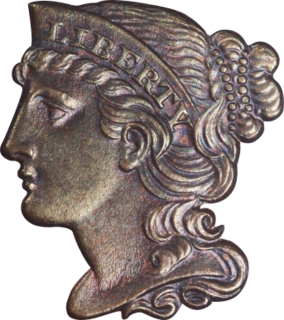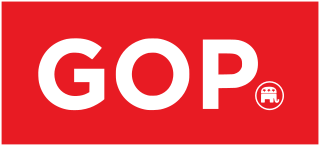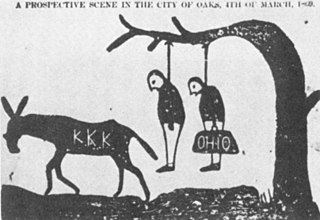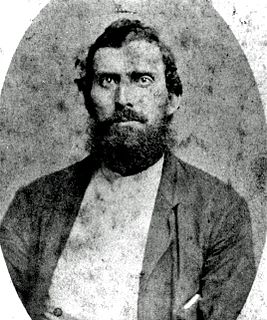 W
WIn the history of the United States, carpetbagger is a largely historical term used by Southerners to describe opportunistic Northerners who came to the Southern states after the American Civil War, who were perceived to be exploiting the local populace for their own financial, political, and/or social gain. The term broadly included both individuals who sought to promote Republican politics, and individuals who saw business and political opportunities because of the chaotic state of the local economies following the war. In practice, the term carpetbagger was often applied to any Northerner who was present in the South during the Reconstruction Era (1865–1877). The term is closely associated with "scalawag", a similarly pejorative word used to describe native White Southerners who supported the Republican Party-led Reconstruction.
 W
WThe Constitutional Union Party was a United States third party active during the 1860 elections. It consisted of conservative former Whigs, largely from the Southern United States, who wanted to avoid secession over the slavery issue and refused to join either the Republican Party or the Democratic Party. The Constitutional Union Party campaigned on a simple platform "to recognize no political principle other than the Constitution of the country, the Union of the states, and the Enforcement of the Laws".
 W
WIn the 1860s, the Copperheads, also known as Peace Democrats, were a faction of Democrats in the Union who opposed the American Civil War and wanted an immediate peace settlement with the Confederates.
 W
WThe Knights of the Golden Circle (KGC) was a secret society founded in 1854, the objective of which was to create a new country, known as the Golden Circle, where slavery would be legal. The country would have been centered in Havana and would have consisted of the Southern United States and a "golden circle" of territories in Mexico, Central America, northern parts of South America, and Cuba, Haiti, Dominican Republic, most other islands in the Caribbean, about 2,400 miles (3,900 km) in diameter.
 W
WThe National Union Party was the temporary name used by the Republican Party and elements of other parties for the national ticket in the 1864 presidential election that was held during the Civil War. For the most part, state Republican parties did not change their name. The temporary name was used to attract War Democrats and border states, Unconditional Unionists and Unionist Party members who would not vote for the Republican Party. The party nominated incumbent Republican President Abraham Lincoln and for Vice President Democrat Andrew Johnson, who were elected in an electoral landslide.
 W
WThe Republican Party, also referred to as the GOP, is one of the two major contemporary political parties in the United States, along with its main historic rival, the Democratic Party.
 W
WIn United States history, the term scalawag referred to white Southerners who supported Reconstruction policies and efforts after the conclusion of the American Civil War.
 W
WIn the United States, Southern Unionists were white Southerners living in the Confederate States of America opposed to secession. Many fought for the Union during the Civil War. These people are also referred to as Southern Loyalists, Union Loyalists, or Lincoln's Loyalists. Pro-Confederates in the South derided them as Tories. During Reconstruction, these terms were replaced by “scalawag”, which covered all Southern whites who supported the Republican Party.
 W
WTurners are members of German-American gymnastic clubs called Turnvereine. They promoted German culture, physical culture, liberal politics, and supported the Union war effort during the American Civil War. Turners, especially Francis Lieber, 1798–1872, were the leading sponsors of gymnastics as an American sport and the field of academic study.
 W
WThe Wide Awakes were a youth organization and later a paramilitary organization cultivated by the Republican Party during the 1860 presidential election in the United States. Using popular social events, an ethos of competitive fraternity, and even promotional comic books, the organization introduced many to political participation and proclaimed itself as the newfound voice of younger voters. The structured militant Wide Awakes appealed to a generation which had been profoundly shaken by the partisan instability in the 1850s, and offered young northerners a much-needed political identity.